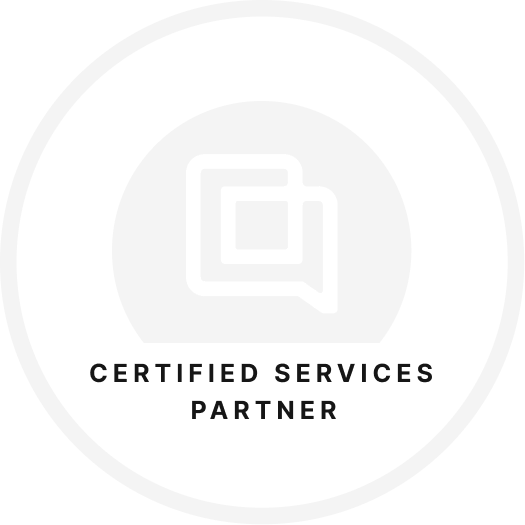Customer service representatives and customer support agents aren’t just problem-solvers, they’re brand ambassadors. After all, customer support agents specialize in resolving specific issues and providing technical assistance. Whether answering product questions, resolving complaints, or guiding users through complex processes, these frontline professionals play a pivotal role in shaping how customers perceive your business.
Investing in great customer support pays off. Businesses that prioritize customer satisfaction often see:
- High customer retention rates
- Stronger brand loyalty
- Increased word-of-mouth referrals
- More upsell and cross-sell opportunities
- Lower churn rates
But reaching those outcomes starts with building the right support team. Recruiting customer support agents isn’t just about filling seats, it’s about finding people with the empathy, communication skills, and problem-solving mindset to elevate your entire customer experience.
Let’s explore the practical strategies for attracting, evaluating, and hiring top-tier support agents who can help your business thrive.
What makes a great customer support agent?

While many people can answer tickets and follow scripts, great support agents bring much more to the table. They blend emotional intelligence, technical know-how, and strategic thinking to create experiences that turn customers into loyal advocates.
Here are the key traits that separate good agents from truly exceptional ones:
- Empathy: The cornerstone of understanding what it means to support someone. Great agents can put themselves in the customer’s shoes by acknowledging frustration and validating their concerns while staying calm and professional.
- Clear communication: Exceptional agents with good customer service skills know how to simplify complex information, set expectations clearly, and strike the right tone. Whether it’s via email, live chat, or phone, they communicate in a way that’s helpful, human, and on-brand.
- Problem-solving skills: A great customer service representative doesn’t just follow a checklist and walk blindly from Point A to Point B. They think critically, ask the right questions, and take initiative to resolve issues quickly and accurately. They’re resourceful and able to adapt when things don’t go as expected.
- Product knowledge: Top-tier support professionals take the time to deeply understand your product or service. This then allows them to deliver more accurate and faster responses. They also help translate product features into real value for the customer.
- Patience and resilience: Customer support can be challenging. Great agents stay composed even in high-pressure or emotionally charged situations. They bounce back quickly from tough interactions and remain solution-focused.
- Team collaboration: They know when to escalate an issue, loop in other teams, collaborate to find a better solution, all while keeping the customer’s experience seamless. Team leads play a crucial role in fostering this collaborative environment and supporting the growth of support agents, ensuring a supportive structure that promotes both employee and customer satisfaction.
- Curiosity and continuous learning: Technology and customer expectations are constantly evolving. Great agents stay curious, seek feedback, and strive to continuously improve their performance.
Where to find the best talent?

Whether you’re hiring in-house or building a remote team, these platforms and channels are ideal for sourcing skilled, service-oriented professionals:
Specialized job boards
Crafting detailed and engaging job descriptions is crucial to attract potential candidates who are well-informed about the role and the company culture. Many platforms focus on customer support and remote-friendly roles, attracting candidates with relevant experience and passion for service.
General job platforms
Well-known job boards such as Indeed and LinkedIn offer access to a wide talent pool. Use specific filters and keywords (such as “remote customer support,” or “technical support specialist“) to narrow your search.
Freelance marketplaces
Sites like Upwork and Fiverr are great for sourcing short-term or contract support agents, especially when you need help during peak seasons or product launches. Some freelance professionals may also become long-term hires.
Customer support communities
Engage with industry communities as these spaces are always full of support professionals looking to grow and explore new opportunities.
Referrals and internal networks
Sometimes the best hires come from people you already trust. Encourage team members to refer candidates or tap into your professional network, especially if you’re seeking people who align with your company culture.
Outsourcing and staffing agencies
For businesses needing speed or scale, outsourcing partners like LTVplus can provide pre-vetted support agents, trained to integrate into your workflows and brand voice.
Staffing agencies can also assist hiring managers in efficiently locating and hiring top talent by crafting job descriptions, utilizing multiple hiring channels, and streamlining interview processes to meet their needs.
Hiring process tips for recruiting the right customer service agents

Recruiting great customer support agents isn’t just about finding talent. It’s about creating a hiring process that attracts, evaluates, and sets up agents for success. Here are some best practices to streamline your process and raise the quality of your hires:
1. Craft a clear and compelling job description
Highlight the role’s purpose, clearly define the job positions, day-to-day tasks, tools used, growth opportunities, and include information about your company culture. Be transparent about expectations around hours, performance metrics, and remote flexibility.
2. Pre-screen for communication skills
Use application questions or a short written task to gauge how well candidates express themselves, since communication is a key part of the job. Bonus: This helps filter applicants early without a time-intensive interview.
3. Use situational or role-play assessments
Great agents need to think on their feet. Include support ticket simulations. Email drafting tasks, or mock chat scenarios to assess how they handle tone, problem-solving, and customer empathy.
4. Assess cultural and team fit
Customer support roles require close collaboration. Use interviews to explore soft skills, alignment with company values, and how candidates approach teamwork and feedback.
5. Involve support team members
Have your current support agents or leads participate in interviews or task evaluations. They can offer a frontline perspective and help assess whether a candidate will thrive on the team.
Additionally, onboarding and supporting new employees through a structured process is crucial. This not only accelerates their productivity but also fosters their confidence, integration into the company culture, and alignment with company values.
6. Structure onboarding for fast ramp-up
Don’t stop at hiring. Build a thoughtful onboarding process that includes product training, brand voice guides, shadowing experienced team members, and performance check-ins.
The onboarding of a new hire is tied to the effectiveness of recruiting methods and candidate selection.
7. Set clear success metrics early
Help new hires hit the ground running by defining what “great performance” looks like from day one, whether it’s response time, customer satisfaction scores, or resolution rates.
Interview questions that matter

Asking the right interview questions is key to identifying candidates who have both the soft skills and practical thinking needed for great customer support. Here are several high-impact questions, along with why they work:
1. “Tell me about a time you dealt with a frustrated customer. How did you handle it?”
This question reveals emotional intelligence, communication style, and problem-solving ability. You’ll see how the candidate stays calm, empathizes, and works towards resolution.
2. “How do you prioritize multiple tickets or tasks when everything feels urgent?”
This gauges time management, ability to work under pressure, and strategic thinking—all of which are critical in fast-paced environments.
3. “How would you explain [complex product feature] to someone who’s not tech-savvy?”
This tests clarity of communication and ability to simplify technical or nuanced ideas, which are all essential traits for support roles.
4. “What does great customer service mean to you?”
This helps understand the candidate’s service philosophy, and whether it aligns with your company’s approach to customer experience.
5. “How do you handle situations where you don’t know the answer?”
A strong support agent is resourceful and collaborative. This question explores how they seek help, use internal tools, or escalate when needed.
6. “Describe a time you received constructive feedback. How did you respond?”
Customer support involves continuous improvement. This question reveals coachability, willingness to learn, and a growth mindset.
7. “What tools or systems have you used in previous support roles?”
This checks technical familiarity with customer support tools and platforms which can shorten onboarding time.
8. Scenario-based: “A customer reports a bug that you can’t replicate. What do you do next?”
This practical question tests investigative thinking, communication skills, and how the candidate balances internal coordination with customer updates.
Training programs that focus on handling customer inquiries effectively are essential for preparing the customer service team for challenging scenarios, thereby enhancing their professional development and service delivery.
Onboarding your customer service team for success
Hiring a great support agent is just the first step, how you onboard them determines how quickly they ramp up and how long they stay. A strong onboarding process builds confidence, improves performance, and reinforces your team culture from day one. Here are proven strategies to set your new hires up for success:
1. Provide a structured onboarding timeline
Map out the first 30, 60, and 90 days with clear milestones. Include training modules, shadowing sessions, tool walkthroughs, and check-ins. This give new agents a sense of direction and achievable goals.
Additionally, attracting the best candidates through well-crafted job descriptions is crucial to ensure you start with top talent.
2. Introduce the company product, and culture
Help new agents understand your brand’s missions, tone of voice, and customer expectations. Product knowledge is critical, use demos, product tours, and Q&A sessions to get them up to speed.
Well-trained customer service representatives play a crucial role in shaping client perceptions and experiences, significantly impacting client satisfaction and brand loyalty.
3. Assign a mentor or buddy
It’s crucial to keep a close eye on new hires’ performance and key performance indicators to ensure they are progressing well and to address any issues promptly. Pairing new hires with experienced team members promotes faster learning, builds relationships, and provides a go-to person for questions or challenges.
Starting a new job can be daunting, and having a mentor or buddy helps new employees navigate the challenges and feel more integrated into their roles and the team.
4. Provide documentation and SOPs
Ensure agents have access to well-organized knowledge bases, response templates, escalation workflows, and FAQs. Clear documentation reduces guesswork and builds consistency. Having the right resources in place is crucial for attracting top talent.
5. Use real-life practice scenarios
Simulate common support cases or let them work on lower-risk tickets (with oversight). Practice builds confidence and helps bridge the gap between training and live performance.
It is also crucial to monitor new customer service reps after onboarding to ensure they engage effectively with customers and adhere to company protocols.
6. Set clear expectations early
Clarify KPIs (like response time, CSAT, or resolution rate) and explain how performance is evaluated. This helps new hires focus on what matters most from day one.
An efficient onboarding process ensures that new employees quickly understand their roles and responsibilities, leading to improved performance and better outcomes for the organization.
7. Encourage feedback and continuous improvement
Create space for new hires to ask questions, provide feedback on the onboarding process, and feel heard. It shows that growth and collaboration are valued. Providing the right resources is essential for continuous improvement and fostering a supportive company culture.
Your next great support hire starts here

Choosing and nurturing the right customer support agents is one of the smartest investments a business can make. Great agents drive loyalty, retention, and overall brand perception, all of which impact your bottom line.
Exceptional support doesn’t happen by accident, it’s the result of intentional hiring, thoughtful onboarding, and ongoing team development. Now’s the time to invest in building a world-class support team and contact us today.





